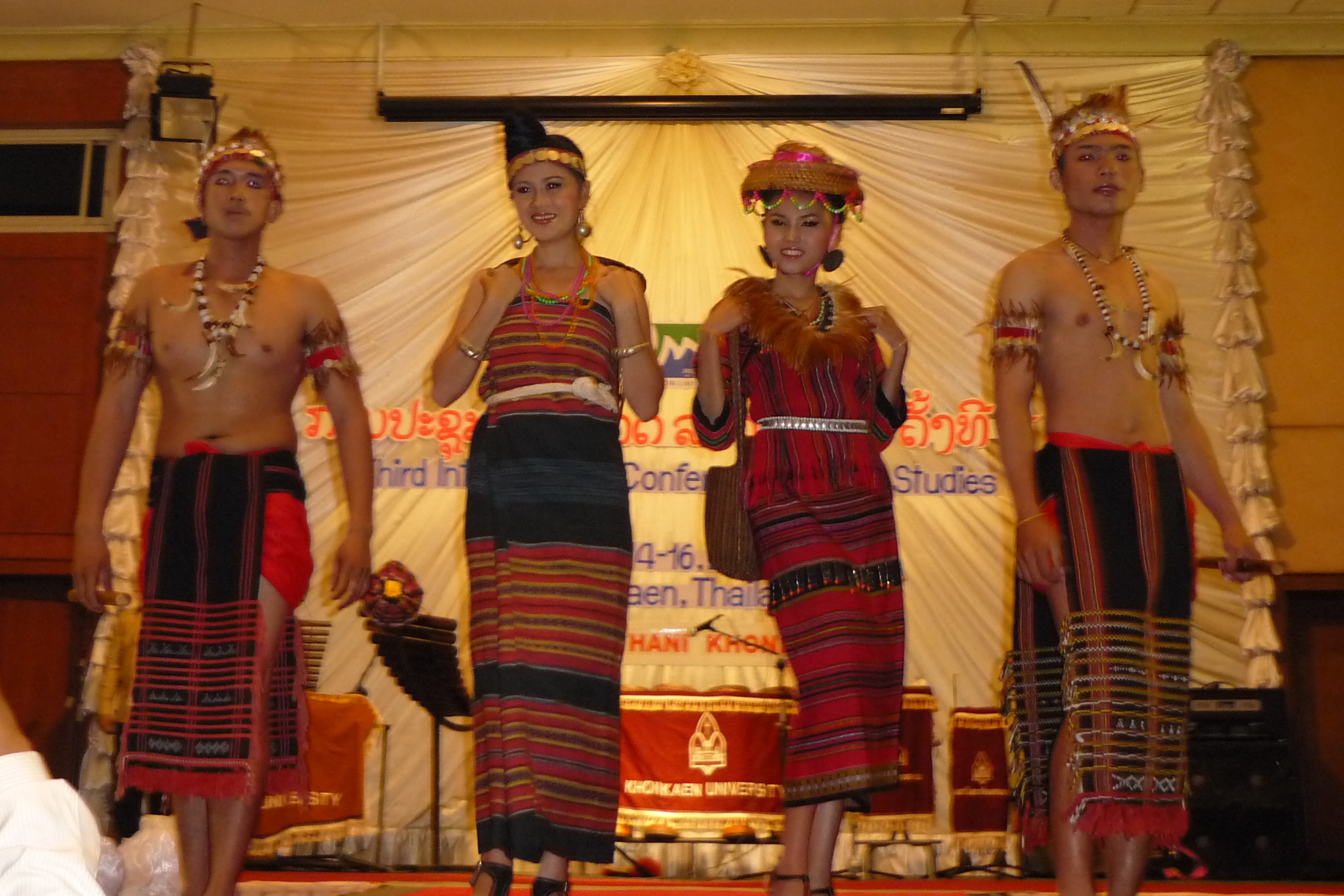The Third International Conference on Lao Studies was hosted two weeks ago by Khon Kaen University (see earlier post on NM). The emphasis of the conference was on ‘Lao culture and society’, with a focus on Lao PDR and well complemented by presentations based on work in neighbouring countries, especially from the Isan area of Thailand.
Key themes were in two broad categories: firstly, past and present aspects of Lao culture (including art, music, religion, society, history, linguistics); and secondly, contemporary social issues (including rural development, economic development, livelihoods, health, education, globalization, land management, tourism, gender and family, cross-border communities).
The location in Khon Kaen facilitated the participation of numerous Thai academics, western development workers based in Lao PDR and the region, and a handful of Lao Government officials. Also attending were a smattering of Lao-Americans and international academics. English was the dominant language of the conference, with Lao and Thai taking a backseat role, and French unheard. Unfortunately, the written Lao which accompanied English in the conference program included pre-revolutionary spelling, which no doubt served to marginalise the few Lao participants in attendance. However, the language bias is unlikely to tip in favour of Lao language (written or spoken) until there is a critical mass of Lao nationals attending such conferences.
The opening and closing plenary sessions reflected the breadth of historical and contemporary concerns. For the former, Prof. Volker Grabowsky presented on ‘The Dhamma Script Culture Domain as a contested space of Lao history’. For the latter, eight international panellists discussed ‘Mekong Actual Outcomes: methodology, transparency and efficacy of social and environmental impact assessment’. Both sessions usefully set the scene for the broad focus for Lao studies, historically and geographically.
In his after-dinner speech, Grant Evans noted the absence of presentations focused explicitly on national, regional or international politics, while acknowledging that there has not been a political scientist focusing on Laos since Joseph Langer in the early 1970s. The emphasis on the conference as a means to ‘improve understanding of Lao culture and society’ provided a means to evade sensitive topics. However, most panels engaged informatively with various dimensions of politics as a part of a critical attention historical and contemporary social life.
Interestingly, unlike the previous two Lao Studies conferences held in the US in 2005 and 2007, which contained a number of presentations on ethnic minority issues in Lao PDR and abroad, the most recent conference contained only two presentations focused on ethnic minority issues: one on Khmou legends in Lao PDR and one on Phou Thai health issues in Isan. This links to the difficulty of clearly defining ‘Lao’ and hence ‘Lao studies’. There is often a blurring between a focus on nationality (within Lao PDR) and ethnicity (beyond Lao PDR).
Films screenings and book stalls from the Lao publisher Dokked, and Thai-based Silkworm Books, White Lotus and Khon Kaen University also added to the scope of critical concern. The conference reception featured Lao and Isan music, dancing and a fascinating fashion display of different costumes of ethnic groups presented in social evolutionary fashion (ie. from the Mon-Khmer groups of Attapeu at the start [see picture above] to the ethnic Lao at the finale), and cotton and silk textiles from Isan were on sale in the lobby area.
The hosting of the Lao studies conference in Khon Kaen was an achievement following on the hosting of the first and second conferences at universities in the USA. The fourth conference will return to the USA, and be held at the University of Wisconsin-Madison in 2013.
It will likely be some time yet before the institutional capacity, interest and ideological space exists in Lao PDR, and more specifically at the National University of Lao PDR (NUOL), to host a Lao studies conference. As one participant noted, while political discussion was somewhat discreet in Khon Kaen, it was still beyond the limits tolerated within Lao PDR. The inability to hold a Lao studies conference in Lao PDR indicates the diffuseness of the term ‘Lao’ as well as the complexities that inspire fascination.
 Facebook
Facebook  Twitter
Twitter  Soundcloud
Soundcloud  Youtube
Youtube  Rss
Rss 